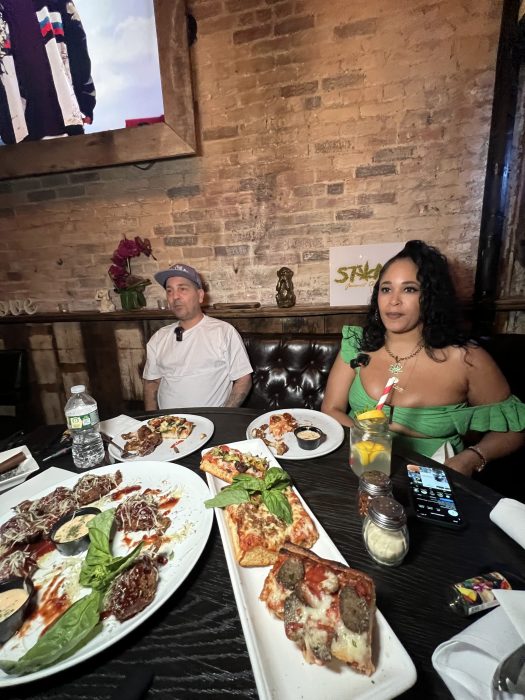In a move that may close Chi Chiz, a West Village bar that serves a predominantly gay and transgender African-American clientele, an administrative law judge at the State Liquor Authority upheld charges against the bar.
“The testimony of the Authority witnesses established an overarching and convincing portrait of persistent inadequate supervision of [Chi Chiz], particularly in connection with the front sidewalk area… which acted as an extension of [Chi Chiz] where customers waited for admittance and smoked,” Nicholas DeCesare, the judge, wrote in an undated ruling obtained from Chi Chiz’ attorney. “The ambient nature of the area where [Chi Chiz] operated was rife with various forms of disorderly conduct, including drug trafficking.”
State licensing agency cosigns city's view drug sales bar's responsibility
In addition to tolerating a generally disorderly business, DeCesare found that the allegations of four drug sales inside Chi Chiz from July of 2009 to January of 2010 were credible.
The standard of proof in such administrative proceedings is very low, with the Authority required to present “substantial evidence” to support the charges. The Authority did not have to prove that Chi Chiz’ owners knew about the conditions, only that they should have known “through reasonable diligence,” DeCesare wrote.
While DeCesare held four hearings and heard from 11 witnesses offered by the Authority or Chi Chiz, the two undercover police officers who made the drug buys never appeared. Instead, the detectives who ran those operations testified.
Neither detective was in Chi Chiz when the sales took place, but they listened on a Kel transmitter. Those devices can record, but the police department does not use that function. The detective who ran three of the buy operations testified that their reception can be spotty and that he did not hear everything in the conversations.
One dealer made three of the sales, and two dealers made the fourth and final sale. The detective who ran that final operation said one dealer met the undercover at a Starbucks near Seventh Avenue and Grove Street and insisted that they walk two-and-a-half blocks to make the sale with the second dealer in Chi Chiz.
DeCesare also heard from two West Village residents and three officers in the Sixth Precinct, which patrols the West Village, who testified about rowdy behavior on the sidewalk near Chi Chiz.
“The ambient environment was clearly a seed bed or breeding ground for a wide variety of different forms of disorderly conduct,” DeCesare wrote.
Ronelle MacKenzie and Everett Ray, the two principals in Chi Chiz, testified they maintained adequate security and threw out anyone who sold drugs in the bar, though both said they had no knowledge of any drug activity in Chi Chiz.
DeCesare’s ruling will go the Authority’s three-member board, which oversees the entire state, for a final decision. The board could revoke Chi Chiz’ liquor license, which would effectively close the bar.
“What happens now is we get 20 days to put in our opposition to the findings of fact and the conclusions reached by the administrative law judge,” said Thomas D. Shanahan, an attorney for Chi Chiz. “It gets submitted to the full board… They have full discretion, and they have a lot of leeway.”
Shanahan and his co-counsel, Christopher Lynn, said that DeCesare made errors in his ruling, including citing facts not in the hearing record.
“I think this judge took a lot of liberties,” Shanahan said.
Lynn told Gay City News, “The administrative law judge needs to be ashamed of himself, and he needs to go back and read that record.”
If the Authority board upholds DeCesare, Chi Chiz can sue in state court.
The bar is also facing a nuisance abatement lawsuit brought by New York City that is seeking to close the bar. That case will proceed on December 15 before Judge Martin Schoenfeld.
Chi Chiz has counter-sued, charging that the city was motivated by racial and anti-gay animus when it sought to close the bar.

































